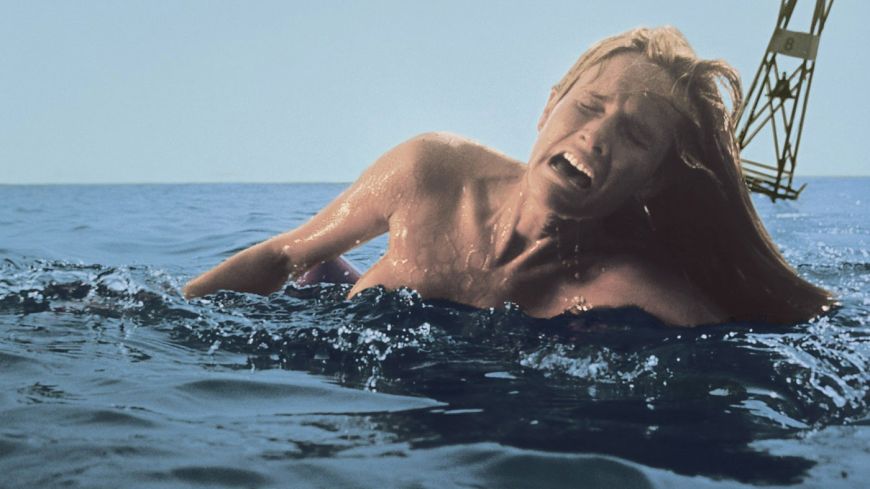
Two five star reviews for the price of one, both poles apart by decades and substance. One gave rise to the term ‘blockbuster’ and the other is a black and white arthouse poem finally seeing the light.
For the latter, opening today at The Filmhouse, refer my colleague Euan Andrews’ review of Bela Tarr’s new masterful opus Turin Horse.
And so to the Great White himself. I thought I’d knock this off quickly whilst asleep having seen it a trillion times but the more I scribbled notes the more I needed to see it again.
And so I did.
The scene where Quint (Robert Shaw) tells his reluctant colleagues of past exploits (based on a real WW2 incident) is in my mind one of the all time great movie moments ever realised and for this alone, yet along with many other unforgettable scenes makes Jaws a bona-fide classic.
Some films are known for their ability to ripen over time, we see new things upon each viewing, ideas missed before because one has now aged and is supposedly wiser. Casablanca and It’s a Wonderful Life spring to mind although not obvious comparisons. But Jaws is genuinely such a film.
Within minutes I was struck by how masterfully directed and edited, how tense, how beautifully shot and by how horrifying it all is, all the better for hardly ever seeing the villain. It’s a masterclass in tension and creating characters we care for, fretting not just for their survival but for their reputation.
At the outset we don’t see the beast attack a lone innocent in moon-dappled waters, she’s simply tossed around shrieking unbearable guttural sounds. I was taken aback by just how frenzied it is and we don’t even see anything.
It’s one iconic influential cinematic moment after another interspersed with memorable naturalistic dialogue. Not just between the principals but between a whole community at odds over the decisions they’re forced to make. It’s more a complex study of social human interaction than horror.
Spielberg’s work is usually about the subtext under the surface gloss of big concepts and dazzling spectacle, ironic because here the spectacle is literally under the surface. Jaws is slightly about a shark but mainly it’s about protecting family, about male bonding, about class war and the fight between bureaucracy versus the right thing to do.
Two stories expertly weave together; one about measures taken to destroy a menace, the other and more potent angle the relationship between three men trying to get along, dealing with their own demons. One is a working class hero with a chip on his shoulder, another a well-educated and well-heeled nerd and finally a decent guy just trying to do right.
Between them and the characters in-between it sustains tension by continuously painting pictures with words that eventually manifest into real images.
In one such moment, Richard Dreyfuss’ character like the shark itself turns up uninvited to Chief Brodie’s house, immediately devours the meat without permission and describes what a shark can do. His behaviour and dialogue pre-empts what is yet to come. It’s a series of subliminal messages describing future events which is how you put an audience on edge without them even realising.
It’s easy to think of Jaws as yet another dumb piece of throwaway popcorn but when you sit down to really watch it again it’s astonishing how well made, how well acted and how riveting it actually is. It’s one of Spielberg’s finest moments, never to be confused with all its instantly forgettable sequels.

